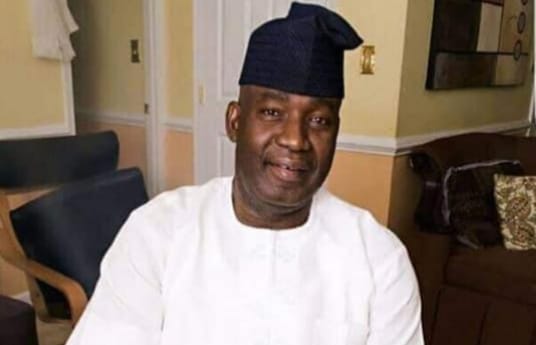Politics
Strategies to prevent post-primary crisis

In the Nigerian political landscape, the aftermath of primary elections often breeds intra-party conflicts and crises, posing significant challenges to the electoral process and the stability of political parties.
Against this backdrop, Morayo Lebi, a seasoned lawyer and governorship aspirant under the All Progressives Congress (APC) in Ondo State, has offered insights into averting post-primary crises.
In an interview with Deputy Editor Emmanuel Oladesu, Lebi shared his plans for the state, preparations for the shadow poll, and strategies to prevent conflicts within the party.
Lebi emphasizes the importance of proactive measures to forestall post-primary crises, highlighting the following strategies:
Read Also: Edo Deputy Gov Godwins Omobayo encountered a plot on the ground
Transparent and Inclusive Electoral Process: Lebi underscores the need for transparency and inclusivity in the conduct of primary elections.
He advocates for fair and transparent procedures that provide equal opportunities for all aspirants to contest.
Additionally, he emphasizes the importance of broadening participation and ensuring that party members have a voice in the electoral process.
Strengthening Internal Party Democracy: Lebi emphasizes the significance of internal party democracy in fostering party cohesion and preventing conflicts.
He stresses the need for parties to uphold democratic principles in their decision-making processes, including candidate selection and nomination.
Lebi believes that promoting internal democracy will enhance the legitimacy of primary elections and reduce the likelihood of disputes.
Effective Conflict Resolution Mechanisms: Lebi underscores the importance of establishing effective conflict resolution mechanisms within political parties.
He advocates for the creation of impartial dispute resolution committees tasked with addressing grievances and complaints in a timely and transparent manner.
By providing avenues for resolution, parties can prevent conflicts from escalating and undermining party unity.
Consensus Building and Mediation: Lebi highlights the value of consensus building and mediation in resolving internal disputes.
He emphasizes the need for stakeholders to engage in constructive dialogue and negotiation to identify common ground and reach mutually acceptable solutions.
Lebi believes that mediation efforts, facilitated by neutral parties, can help prevent conflicts from derailing the electoral process.
Strengthening Party Institutions: Lebi emphasizes the importance of building strong party institutions to support effective governance and prevent conflicts.
He advocates for investing in institutional capacity building, including training party officials and members on democratic practices and conflict resolution skills.
Lebi believes that strong party structures and institutions will help safeguard party unity and stability.
In conclusion, Morayo Lebi’s insights offer valuable perspectives on averting post-primary crises in Nigerian politics.
By prioritizing transparency, inclusivity, internal democracy, effective conflict resolution mechanisms, and institutional strengthening, political parties can mitigate the risk of conflicts and promote a more peaceful and democratic electoral process.
As the APC governorship aspirant in Ondo State, Lebi’s proactive approach underscores the importance of leadership in fostering party unity and stability.
